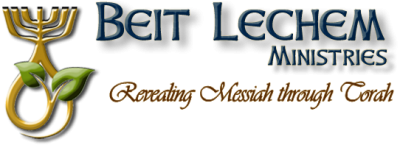Numbers 25:10 – 30:1
Pastor Wendi Wood
This change to the law set a precedent for all time - Their impact is huge!
Establishes the rights of inheritance to women-there were no other amendments to the Torah after this one.
Menassah = to forget H4519, 5382; These 5 daughters reestablished the name! No longer forgotten.
Parallel to Torah (5 daughters=5 books)
I Chronicles 23:22 And El‛azar died, and had no sons, but only daughters. And their brothers, the sons of Qish, took them.
Ruth and Boaz (this established her right to the land - the kinsman redeemer could not have the land without marrying her too) Ruth 4:5.
Mary, Mother of Yeshua (Her house); marries in her own tribe - Luke 3:23
Sons of Manassah>Machir>Gilead>Tselophhad; 6 sons of Manassah; “the daughters received an inheritance among the sons”
Read Joshua 17:1-9
Huge inheritance-land in both the east and west of the Jordan
Western side=10 divisions; 5 to the other sons who did not inherit on the east and the other 5 to the 5 daughters (“Daughters of Manasseh” V.6) - roughly 25% of the land’s tribal inheritance (this is why there was concern over who they marry - Numbers 36)
Manasseh was given a huge portion; in fact, other tribes complained theirs was so small in comparison Joshua 17:14
These girls fulfilled the prophecy of Jacob (Genesis 49:22) Joseph is a fruitful bough, even a fruitful bough by a well, whose branches, (Hebrew - bat=daughter, H1323), run over the wall.
Numbers 26:54 To the large one you give a larger inheritance, and to the small one you give a smaller inheritance. Each shall be given its inheritance according to their registered ones.
Reasons for Yahweh’s daughters to approach Him with confidence and trust:
There is not one clause in the Bible that oppresses or belittles women (not systemic in any way!)
Newlywed husbands were exempted from battle (to honor the first year of marriage to their wives-placed importance on this union)
Honor the father and mother
Tight regulation of divorce (Put away)
Strong punishment of rape
Equal opportunity to donate to the tabernacle
Opportunity to serve in the Temple
Captive women had protection
Maidservants specifically included in worship
Special provisions to protect handmaids from abuse and being overworked (Sabbaths off)
Gave them choice in marriage; gave them independence, their own provision 1 Corinthians 7:39
Provision for widows
Protection from unjust accusations (Numbers 6)
Property inheritance for daughters (orphans)
Equal opportunity to be a Nazarite and offer with your own hands Numbers 6:2
The negative impact for taking part in the Ba’al Peor incident - Zimri was from the tribe of Simeon; their inheritance is small and encompassed by Judah (whose inheritance was too large for them). Joshua 19:9
Why is this portion called Pinchas? Only the first few verses reference him. But . . ., the ZEAL of Pinchas is the highlighted theme throughout. This the same zeal that the Daughters of Tselophhad possessed!
Themes: zeal, redemption, valuing one’s inheritance, the value of women
Ch. 25 - Zeal in slaying the sin; he set precedence; 23,000 priests counted in this census, (23,000 people died from plague plus the 1,000 leaders that were hanged)
Ch. 26 - In the census of the Children of Israel 20 years old and above, it first names the 5 daughters of Tselophhad and points out that Joshua and Caleb were the only 2 original registered (numbered) ones left from Mt. Sinai
Ch. 27 - This is the second place in which all 5 daughters of Tselophhad are mentioned. They were so zealous that they were willing to come to the door to the Tent of Appointment and stand before Moses, Eleazar, the leaders, and the whole congregation.
They did not want their father’s name removed, nor did they want to be without an inheritance. They wanted to possess the land too! (for their past, present, and future) This set a new law of precedence
Ch. 28-29 - The zeal in heeding the feast days including the daily, ascending offerings, as well as the new moon offerings.
These are all actions: slay the sin, trust for the promise and speak the good report, fight for your inheritance of the land, guard the appointed times of Yahweh in the land.
Questions:
When Pinchas slays Zimri (Simeonite man) and Kozbi (Midyanite woman) in Numbers 25:7-8, was he following Torah? Can you find scriptures to back this?
Why did the scriptures mention Numbers 26:11 that the sons of Korach did not die? Besides the census, what is the significance of this information?
Why did this portion highlight the daughters of Tselophhad?
This portion covers the Feast Days again as well as the new moon and daily offerings. Were you aware of the daily offerings? How does this even apply to our lives now?
Who were the Midyanites descendants of? Why did Yahweh say to distress them in Numbers 25:17?

